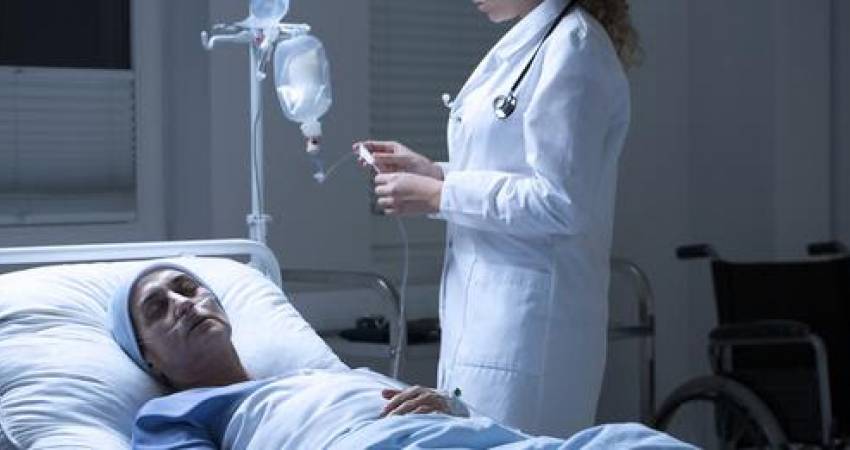
New Study: Legalising Assisted Suicide associated with increased suicide rates overall
Image credit: KatarzynaBialasiewicz / Istockphoto.com
A new peer-reviewed study published in the Journal of Ethics in Mental Health, has shown that legalising assisted suicide was associated with an increase in the overall suicide rate.
The study, led by the Director of the Anscombe Bioethics Centre, Prof. David Albert Jones, found that current European data shows a consistent association with increased suicide rates relative to countries without euthanasia or assisted suicide (EAS), debunking claims that legalising EAS would lead to fewer non-assisted suicides.
Prof. Jones said:
“This is further evidence that legalising assisted suicide or euthanasia will result in more people ending their lives prematurely. It will not save lives. It will not help prevent suicide. Legalising what is euphemistically called ‘assisted dying’ will endanger the lives of older people living with serious illness.
We must say very clearly to all people irrespective of age, disability, or medical condition, that they should not be made to feel that they are a burden to the community. They are full members of our society and the human family. We are all enriched by their presence”.
Euthanasia describes the killing of a patient by their physician (typically at the former’s request), whereas assisted suicide signifies the enabling of a patient to end their own lives by prescribing and supplying them with lethal drugs. Some advocates of those practices have argued that, paradoxically, introducing them into medicine would reduce suicides. This contention is based on the idea that people who want to end their own lives in medically difficult situations would find the option of assisted suicide or euthanasia comforting, giving them the psychological security not to end their lives prematurely as they might otherwise.
Prof. Jones has previously demonstrated that data from the United States has shown no reduction in non-assisted suicide, but rather that assisted suicide is associated with a significant increase in total suicide (inclusive of assisted suicide itself) and with some evidence of an increase in non-assisted suicide. In this new study, Jones further shows that European data similarly shows that in countries that have introduced EAS into law and medical practice:
No reduction exists in non-assisted suicide relative to the most similar neighbouring non-EAS country;EAS is followed by considerable increases in suicide (inclusive of assisted suicide and euthanasia);In some EAS countries, there is a relative and/or an absolute increase in non-assisted suicide;Data from both Europe and from the U.S. indicate that women have been placed most at risk of avoidable premature death by EAS.
This evidence suggests that so far from the introduction of EAS reducing suicides, it is actually associated with greater incidence of premature death (particularly amongst women), raising raise serious and concerning questions about the effect of assisted suicide and euthanasia on society’s commitment to and strategy for suicide prevention.
These findings are crucial for legislators to consider, as they come whilst jurisdictions in the British and Irish Isles consider legislation which would introduce euthanasia and / or assisted suicide into law and medical practice.
The Irish Joint Oireachtas Committee on Justice recommended that a Special Committee examine topics concerning euthanasia and assisted suicide following its scrutiny of Gino Kelly TD’s ‘Dying with Dignity’ Bill 2020.
The UK Parliament’s House of Lords gave Second Reading to Baroness Meacher’s ‘Assisted Dying’ Bill in October last year.
Liam McArthur MSP held a consultation on his proposed ‘Assisted Dying for Terminally Ill Adults (Scotland)’ Bill to be considered by the Scottish Parliament later this year.
The States Assembly of Jersey voted in principle to introduce euthanasia and assisted suicide if it is satisfied that potential safeguards will be sufficient in a vote which will take place in October.
This piece was first published on Gript.
Featured
- Pope Francis on the "grave injustice" of abortion
- Mother sends card on daughter’s birthday to doctors who told her to abort her baby
- Reclaim: Fruitful street session reminds us why we continue fighting for life
- Victory for Life as Maryland Assisted Suicide bill defeated for the 8th time
- Grief more common than relief following abortion, new study finds
- Pro-life group appalled at provision of abortion services in Cavan General Hospital
- Niamh Uí Bhriain opening address: Assisted Suicide Harms Us All
- Assisted Suicide Harms Us All
- Rally for Life 2025
- Don't assist Suicide 2024
You can make a difference.
DONATE TODAY